In the fast-paced world of logistics, where every mile, minute, and manoeuvre counts, the role of data science in the trucking industry has become indispensable. Data science is revolutionising the way fleets operate, transforming raw information into actionable insights that optimize routes, enhance safety, and boost overall efficiency. Day by day role of data science in transportation is becoming more crucial.
To create predictive models, this discipline makes use of a variety of technologies, such as machine learning (ML) algorithms, the Internet of Things (IoT), artificial intelligence (AI), and analytical software like Python.
Understanding Data Science and Its Role
Although data science is sometimes referred to as a “new industry,” it has long been an essential part of corporate operations. A variety of methods from fields such as economics, genetics, robotics, linguistics, psychology, physics, and others are used in today’s data science. Nowadays, almost every business is data-driven. Data science plays a pivotal role in optimising logistics by harnessing the power of data to enhance efficiency and decision-making. Through advanced analytics, predictive modeling, and machine learning algorithms, logistics companies can optimize routes, predict demand, manage inventory effectively, and minimize operational costs. Data-driven insights enable real-time tracking, improving supply chain visibility and responsiveness.
Current Role of Data Science
Data science empowers the logistics industry to navigate complex challenges and deliver more agile, cost-effective, and environmentally friendly solutions. Following are the major 5 roles data science place in the trucking industry:
1. Route Optimization for Fuel Efficiency:
Data science algorithms analyze historical traffic patterns, weather conditions, and road infrastructure to recommend the most fuel-efficient routes. Minimizing fuel consumption can reduce costs and contribute to a greener, more sustainable transportation industry.
2. Predictive Maintenance:
Utilizing sensor data from trucks, data science enables predictive maintenance models. Trucking companies can schedule maintenance proactively, reducing downtime and avoiding costly breakdowns on the road.
3. Enhanced Safety Measures:
Through the analysis of telematics data, data science has played a pivotal role in enhancing safety on the highways. Predictive analytics can also identify the potential risks and provide insights into driver behavior which can help in allowing companies to implement targeted training programs and improve overall road safety.
4. Dynamic Pricing Strategies:
Data-driven insights empower trucking companies to adopt dynamic pricing strategies. By considering market demand, fuel prices, and other relevant factors, companies can optimize pricing structures, enhancing competitiveness in the ever-evolving logistics landscape.
5. Customer Satisfaction and Transparency:
Real-time tracking and data analytics enable better communication with customers. Providing accurate delivery estimates and proactive updates enhances customer satisfaction. Data science can also help to foster trust and loyalty in logistics where timely and transparent communication is crucial.
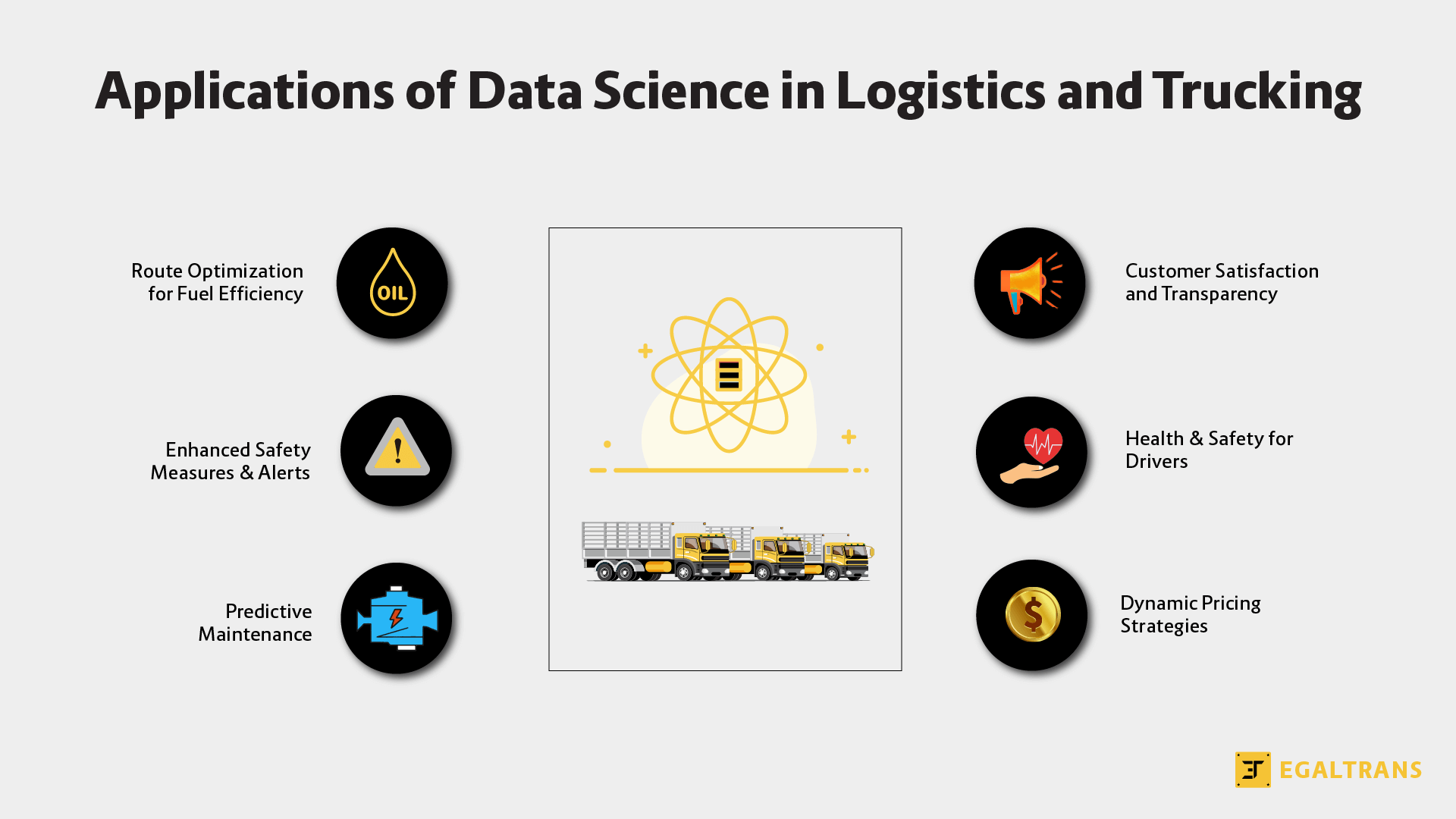
Future Applications of Data Science in Transportation
In the future, data science has been poised to revolutionise the truck logistics industry. This can be possible by enhancing efficiency, reducing costs, and optimising supply chain management. Advanced analytics and machine learning algorithms might enable real-time tracking of vehicles. Data science can also help in predicting optimal routes, and dynamically adjusting delivery schedules based on various factors such as traffic conditions and weather patterns.
The utilisation of Internet of Things (IoT) devices in cargo monitoring using fleet management solutions will provide real-time visibility into the condition of goods. This helps in ensuring compliance with safety standards and reducing the risk of spoilage. Henceforth data science has continued to evolve and its applications in truck logistics will undoubtedly lead to a more agile, responsive, and streamlined transportation ecosystem.

Moreover data science is helping in reshaping the trucking industry by providing actionable insights that go beyond traditional logistics approaches. As technology continues to advance, harnessing the power of data will be key for trucking companies to navigate the road ahead efficiently, sustainably, and safely.



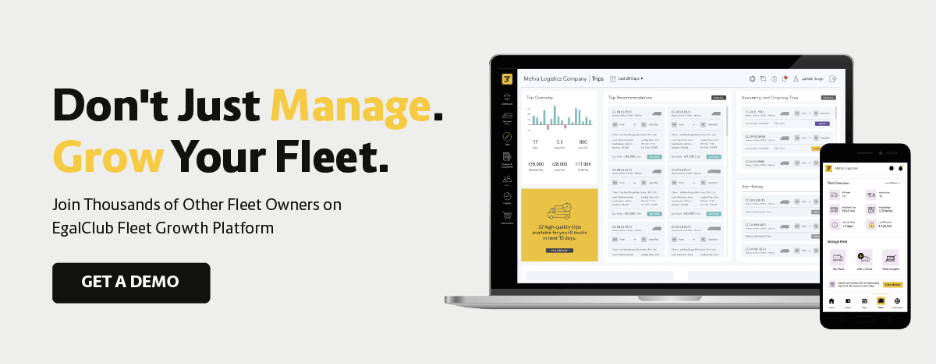
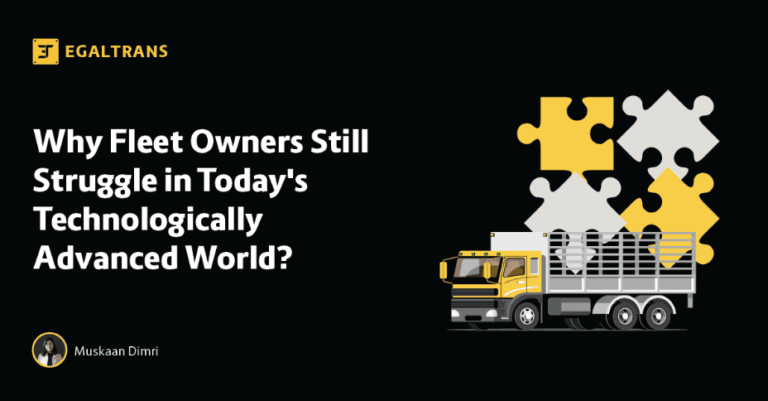
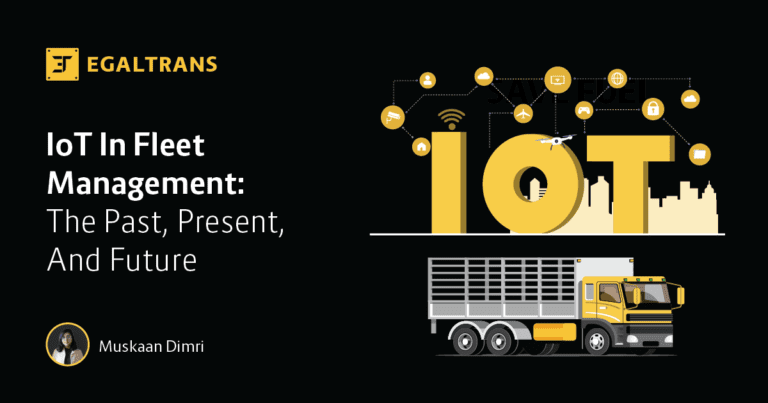
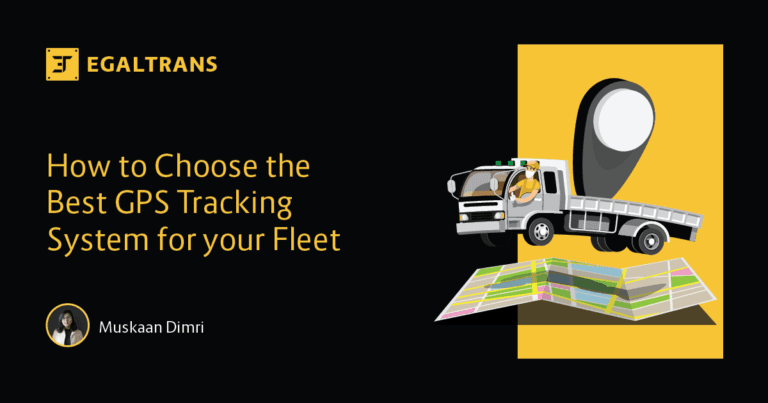
[…] management systems generate a wealth of data that can be analyzed to make informed decisions. This data-driven approach helps in identifying areas for improvement, optimizing routes, and enhancing overall fleet […]